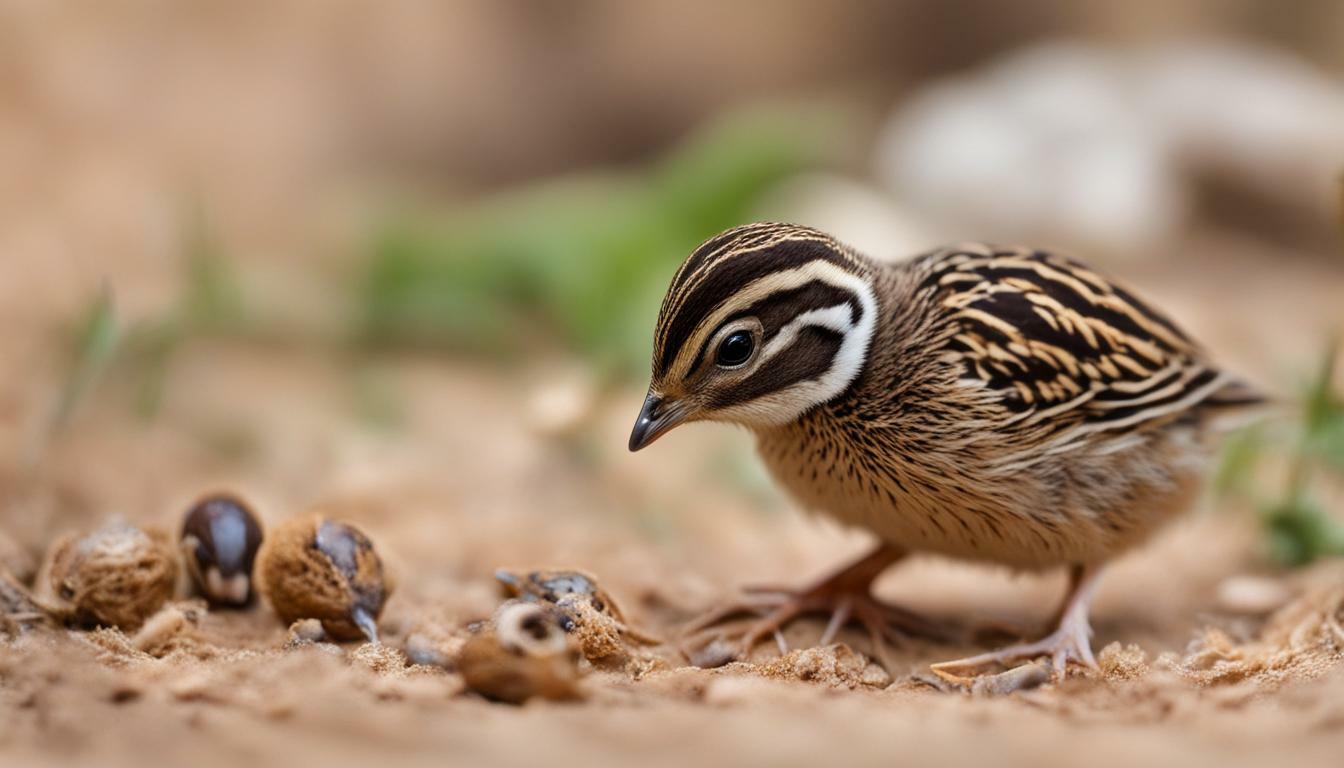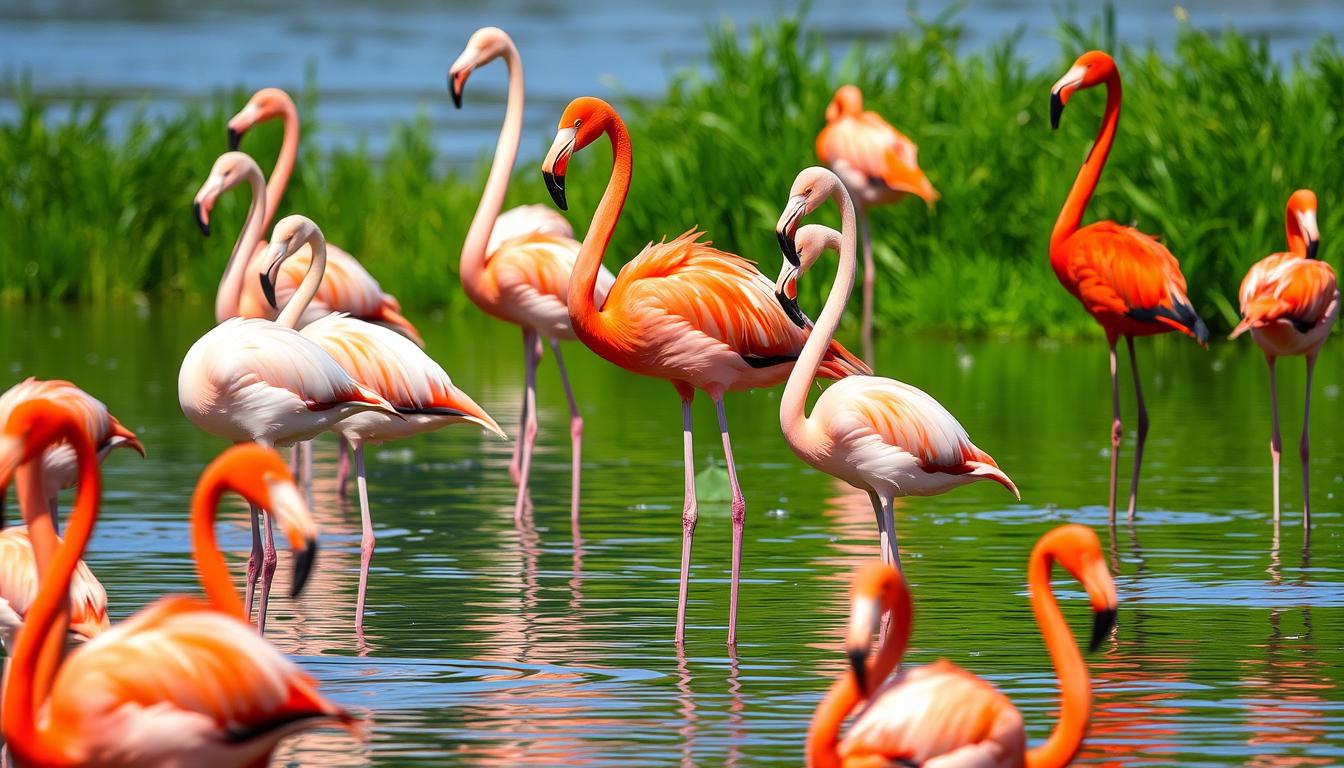When Do Baby Quails Start Eating? A Guide for New Caregivers

Table of content:
Newly hatched baby quails require special care and feeding. Knowing when to start offering food and water is crucial for their health and development. This guide covers everything you need to know about feeding baby quails from hatching to independence.
Hatching and First Feeds
Baby quails are ready to eat immediately after hatching. Their yolk sac provides nutrition for the first 12-24 hours of life. During this time, the baby quail absorbs the remaining yolk for energy.
Start offering food and water within the first 24 hours after hatching. The baby quail’s yolk sac will quickly deplete after a day.
For the first day or two, provide:
- High protein feed made for chicks and hatchlings
- Finely crumbled boiled egg yolk
- Finely crumbled boiled egg white
- Small bowls of water for drinking
Feed small amounts every few hours. The baby quail’s digestive system is still developing. Frequent tiny meals are ideal.
Transitioning to Solid Foods
After 48 hours, the yolk sac is gone. The baby quail relies entirely on food and water for survival.
Slowly transition from egg-based meals to a starter feed made for young quails. Look for a feed labeled “starter ration” with at least 24% protein.
The ideal starter feed will contain:
- Dried insects and mealworms
- Legumes
- Grains
- Seeds
- Vitamins and minerals
- High protein content
Crush or grind pellets into a chick crumb texture. This makes it easy for a new quail to peck and digest.
Mix finely chopped greens into the starter feed. Grass, lettuce, spinach, and kale provide nutrients. Only offer small amounts at first.
By day 5, the baby quail should eat starter feed as its main diet. Provide feed in shallow dishes the quail can easily access.
Scatter feeds over a tray or paper plate. This encourages foraging behavior.
Feed Amounts and Schedule
Baby quails have tiny stomachs. They need to eat small amounts frequently, about every 2-3 hours.
Keep feed available at all times during the first 2 weeks. Refill dishes whenever they look low or empty.
Watch for signs of hunger like increased peeping, tapping feed dishes with their beak, and foraging behavior. More food should be offered immediately when these behaviors are observed.
As the quail grows, you can gradually increase feed amounts while spacing out feeding times. But continue free choice feeding for at least 14 days for optimal growth.
Here are some general feeding guidelines by week:
Week 1
- Feed Amount: As much as quails can consume while keeping feed available at all times
- Diet: High protein starter feed, finely crumbled
- Supplements: Finely chopped greens
- Schedule: Small frequent meals, every 2-3 hours
Week 2
- Feed Amount: As much as quails can consume, keep feed available at all times
- Diet: High protein starter feed
- Supplements: Greens, chopped boiled egg
- Schedule: Feed every 4 hours
Week 3
- Feed Amount: Approx. 1 oz per quail daily
- Diet: Starter feed
- Supplements: Greens, chopped hard boiled eggs, sprouted seeds
- Schedule: Feed 3 times daily
Week 4
- Feed Amount: Approx. 1.5-2 oz per quail daily
- Diet: Starter feed
- Supplements: Greens, chopped boiled eggs, sprouted seeds
- Schedule: Feed 2 times daily
Amounts and schedules will vary based on factors like climate, activity level, and weight gain. Weigh quails weekly and adjust feed to maintain growth.
Supplements for Nutrition
In addition to starter feed, provide supplements for added nutrition:
Hard Boiled Eggs
Continue offering finely crumbled egg yolk and whites for 2-3 weeks after hatching. The protein supports muscle growth and development.
Greens
Chopped greens like kale, spinach, lettuce, and sprouts offer vitamins and minerals. Feed 1-2 tablespoons per quail daily.
Grit
Starting at 1 week old, offer a shallow dish of chick-sized grit. This aids digestion and provides calcium for bone health.
Clean Water
Keep fresh water available at all times for stable drinkers. Avoid using open containers like chick waterers, which can harbor bacteria.
Signs of Readiness for Independence
Baby quails develop quickly. Here are signs a quail is ready to transition to independence:
- Pecking and foraging on its own
- Eating standard feed well without supplements
- Venturing away from heat source
- Flying short distances
- Feathers growing in
- Less vocalization and distress calls
- Actively avoiding human touch
This usually occurs between 3-5 weeks old. Chicks mature at different rates – let their behavior guide readiness.
Move independent chicks to a starter coop with feed and water. Provide extra heat if needed. Monitor closely at first.
Setting Up a Starter Coop
The starter coop for newly independent chicks should offer:
- Heat: Use a brooder lamp or chick heating pad if necessary
- Feed and Water: Use quail-sized feeders and drinkers
- Bedding: Pine shavings, sand, or straw
- Protection: Predator-proof any openings or vents
- Space: 0.5 square feet per quail
Add landscape mesh fencing to create a small pen for outdoor access. Provide adequate shade and protection as well.
Observe the quails’ comfort level. Adjust ventilation, heat, and space to encourage natural behaviors.
Common Feeding Problems
Watch for these common feeding issues in baby quails:
Dehydration
Ensure fresh water at all times. Dip their beaks gently in water to teach drinking. Add electrolytes to water for the first week.
Overeating
Limit feed if crop appears enlarged. Massage crop gently to help empty it. Offer greens to provide bulk without excess protein.
Diarrhea
Consult a vet if diarrhea persists over 24 hours. Withhold feed for 12-24 hours and offer electrolyte water.
Malnutrition
If quail seems small, lethargic, or poorly feathered, review diet. Increase high protein feed frequency. Provide supplements like eggs and greens.
Overcrowding
Overcrowded chicks may be underfed. Follow space requirements and reduce brood size if needed.
Monitor chicks closely for any signs of illness or poor development. Seek vet advice immediately for any concerns.
Transitioning to an Adult Diet
At 6-8 weeks old, quails are ready for an adult diet.
Slowly transition them to a standard game bird or quail laying feed. Look for 16-18% protein feed with added calcium and nutrients.
Introduce new feeds gradually over 2 weeks. Watch for any issues digesting larger pellets.
Adult quails enjoy foraged greens, sprouted seeds, vegetables, and fruit in addition to commercial feed. Provide a varied nutrient-dense diet.
Conclusion
Raising healthy, thriving baby quails starts with proper nutrition. With a quality starter feed, ample fresh water, and supplemental foods, baby quails will get all the nutrients they need in those critical first weeks of life. Monitor their growth and development closely, transitioning to independence when they display natural behaviors and abilities. Within just 6-8 weeks, the tiny hatchlings will transform into adult quails ready to forage, flock, and explore their surroundings. With the right care in their earliest days, baby quails can grow into a lovely backyard flock.
Welcome. I’m Adreena Shanum, the proud owner of this website, and I am incredibly passionate about animals, especially poultry. I founded adreenapets.com as a labor of love, stemming from my desire to share my knowledge and experiences with poultry enthusiasts worldwide.




